Imagine being stranded on a deserted island, with nothing but the clothes on your back and your wits to help you survive.
Would you know what to do? While being stranded on an island might seem like a romantic adventure, the reality is far from it. With the right tools and knowledge, survival can be a manageable task. The harsh reality of survival on an island is not just about finding food and water but also about staying mentally and physically fit.
Surviving on an island can be a challenge due to its ever-changing environment. Islands are surrounded by wild waters and unpredictable weather conditions, doing planning and preparing for your stay difficult. The island may also lack resources and fresh water, forcing you to find creative ways to stay nourished and healthy. Additionally, you may be exposed to hazardous wildlife and unfamiliar terrain, so you must be prepared with the proper survival skills and equipment.
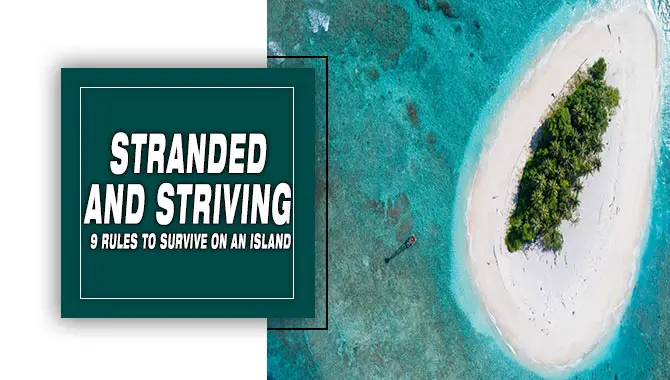
Things You Need To Know To Survive On An Island
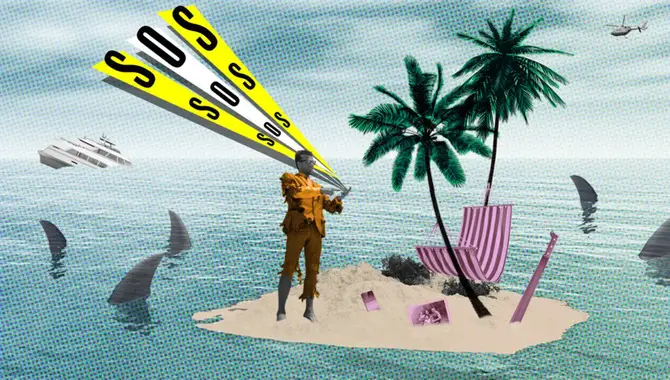
Surviving on an island in a difficult situation is essential to develop the knowledge and skills needed to stay alive. Knowing how to build a shelter, find food, and create a source of potable drinking water is important. Additionally, you must be able to navigate through the terrain, identify any potential threats, and recognize signs of danger.
Practicing these skills will help you feel more prepared if you ever find yourself in this situation. If you can do so, practicing these survival skills in a controlled environment is what we recommend. So, whether you are an adventurer seeking a new challenge or want to have preparations for the unexpected, here are 10 rules to survive on an island.
1) Prioritize Safety
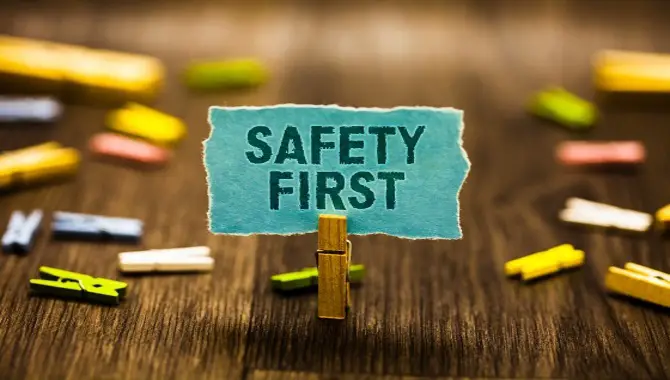
Always be aware of your surroundings and make sure you are taking the necessary steps to keep yourself safe. Ensure you have prepared an emergency plan in case of an unexpected event.
Prioritize your safety to survive on an island. Always be aware of the dangers of the environment, such as dangerous animals, hazardous terrain, and unpredictable weather. Familiarize yourself with the area and know how to escape any dangerous situation. Avoid taking risks and stay alert to potential dangers.
Additionally, always stay hydrated and protect yourself from the elements. Wear appropriate clothing to protect yourself from the sun, wind, and rain. Also, always have a way to make a fire, such as a lighter or matches, to keep your environment safe and warm.
2) Find Shelter
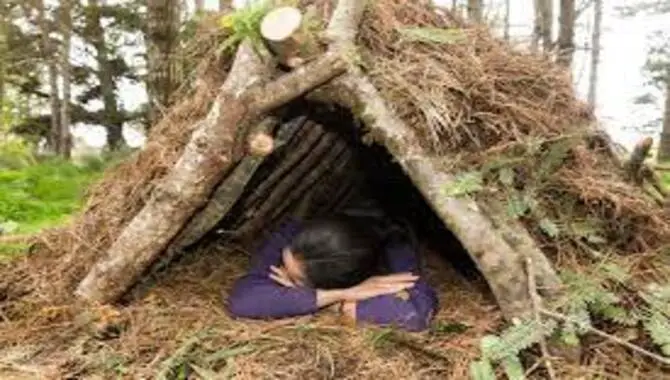
Finding shelter is the first important rule to survive on an island. The shelter must be secure enough to withstand rain and strong winds while providing warmth and protection from potential predators. It should be large enough to provide comfort and privacy yet small enough to provide ease of access and conserve energy.
Building a shelter from natural materials on the island, such as branches and leaves, is the most sustainable and efficient way to ensure protection and comfort. If there is no possibility of building a shelter, look for natural caves or crevices in the rocks that can provide the same protection. The shelter is critical for survival. Make sure you have a dry and secure shelter that provides insulation from the elements.
3) Collect Food And Water:
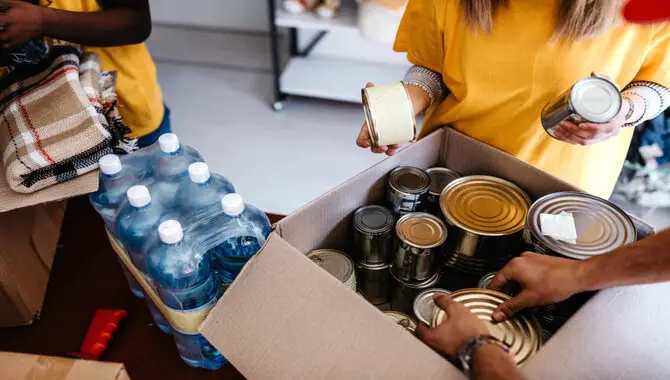
Food and water are essential to survival on an island, so you should collect as much as possible. You should look for edible plants, fruits, and nuts and try to catch fish or other animals. If you find a source of fresh water, like a stream or lake, you should purify it so it’s safe to drink. It would be best if you also tried to collect rainwater in containers.
If you can, find a way to store the food and water, you collect to have enough to last until you can be rescued or find a way off the island. Collecting food and water is essential for survival. Look for freshwater sources, such as streams, ponds, and lakes. Look for food sources like edible plants, birds, and fish.
4) Make A Plan:

A plan should include what resources are available on the island, what tools are required, and how they will be used to survive. Consider food sources, shelter, and water sources. It is important to identify which resources are renewable and which ones are not.
Additionally, plan for a way to signal for help and set up a method of communication with the mainland. This can be done with a signal fire or a reflective surface seen from the air. Finally, think about how to acquire new supplies as needed and what other precautions must be taken for long-term survival.
Make sure you plan how you will survive on the island. This plan should include how you will collect food and water, how you will make a shelter, and how you will stay safe.
5) Stay Focused :

The ninth rule of surviving on an island is staying focused and positive. This is especially important when you are in a difficult or dangerous situation. Staying focused and positive will help you stay calm and rational rather than panicked or overwhelmed. Take regular breaks, get enough sleep, and find ways to stay entertained and motivated.
Experience and knowledge can also help find potential solutions and successes. Finally, practice self-care and be kind to yourself. Even if the situation is dire, finding joy in small moments can help to provide much-needed mental strength. Staying focused is essential for survival.
Make sure you know your environment and what is happening around you. Look out for signs of danger or anything out of the ordinary. Keeping your wits about you is important to ensure you don’t make any mistakes that could cost your life. Additionally, be aware of any natural disasters that could occur on the island, like hurricanes, floods, or tsunamis. Be prepared for these events so that you can take the necessary precautions to stay safe.
6) Have A Backup Plan:

When stranded on an island, it is important to have a survival plan. It would be best to have the basic tools and supplies you need to survive, such as a knife, tarp, water purification system, fire starter, and shelter. You should also have an understanding of the local environment and the resources that are available to you. This will help you find food and water and build the shelter. Additionally, it is important to remain calm and focused to make the right decisions when faced with difficult situations.
Make sure you have a backup plan in case your primary plan fails. This will help you stay safe and minimize any potential risks. Ensure you have access to emergency supplies such as food, water, and medical supplies. Take advantage of natural resources such as edible plants, fresh water, and shelter. Lastly, be aware of your surroundings and do not take any unnecessary risks. By following these rules, you can maximize your chances of survival on an island.
7) Stay Warm:

Staying warm is one of the most important rules to survive on an island. To stay warm, you should find shelter as soon as possible. If you cannot find natural shelter, you can build a shelter using materials found on the island. Be sure to use any natural windbreaks and build your shelter in an area that will protect you from the elements.
Additionally, try to collect firewood and make a fire to keep you warm. Build your fire in a safe place that won’t risk causing a forest fire or other danger.Keeping your body temperature regulated is essential for survival. Make sure you have adequate clothing and protection from the elements.
8) Stay Hydrated:

One of the most important rules to follow to survive on an island is to stay hydrated. This is especially true if you are stuck on an island with no source of fresh water. You should always carry a large amount of water with you and drink it frequently. If you don’t have access to fresh water, you can use ocean water for cleaning, but it should not be consumed. You can also find and collect rainwater to drink, but boil it first before consumption.
Additionally, you can look for food sources containing moisture, such as fruits and vegetables. By staying hydrated, you can help yourself last longer while stranded on an island. Make sure you are drinking enough water to stay hydrated. This will help you stay healthy and keep your energy levels up.
9) Try Contacting Locals To Survive On An Island:
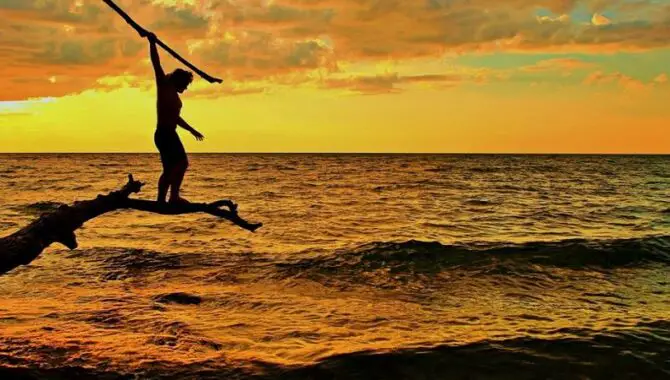
Get to know the locals and learn about the island’s culture. Locals often have a deep knowledge of the island and can provide valuable tips on where to find food, water, and shelter. They can also provide important information about the island’s wildlife and help you identify potential dangers or hazards. Additionally, having contact with the locals can be a great source of comfort, encouragement, and friendship.
This can be especially important in times of distress and anxiety. Furthermore, it is always important to remember to respect the local customs and culture of the people living on the island. This will help ensure you can have a positive and beneficial relationship with them.
Surviving on an island will require you to stay focused and disciplined. Keeping your mind focused on the task will help you stay safe and increase your chances of survival.
The Importance Of Maintaining A Positive Attitude

Maintaining a positive attitude, keeping a clear head, and being resourceful in the face of adversity are crucial. This is especially important when trying to survive on an island, as you may find yourself in various unfamiliar situations and with no one else to rely on.
While it is important to stay alert and aware of the resources around you, it is also important to have the courage to take risks and make the most of the resources available. It is also important to consider the resources available on the island for making fire and protecting against predators.
This can include creating a number of lookout points and having a defensible shelter that is easy to access. Finally, it is important to have a plan for collecting water and food.
This can include fishing and trapping animals, gathering fruit and edible plants, and collecting rainwater. Additionally, it is essential to stay focused on finding ways to get off the island. Whether it is through building a raft or signaling for rescue, having a plan is key to surviving on an island.
Finally, it is important to stay positive and motivated by creating a plan for success and focusing on the end goal of getting off the island. These are just a few of the important rules to follow when stranded on an island. With the right attitude and perseverance, anyone can survive an island and come out stronger on the other side.
Conclusion
Imagine being stranded on a deserted island, with nothing but the clothes on your back and your wits to help you survive. Would you know what to do? While the idea of being stranded on an island might seem like a romantic adventure, the reality is far from it.
With the right tools and knowledge, survival can be a manageable task. From finding a source of fresh water to building a shelter and creating a signal for rescue, it’s important to be prepared for anything. Remember to stay calm, stay focused, and be resourceful. Maintaining a positive attitude is crucial to surviving on an island.
It’s easy to succumb to negative thoughts and emotions when faced with the harsh realities of island life, but it’s important to remember that a positive mindset can be the difference between life and death. By staying focused on the present, setting achievable goals, and finding ways to stay motivated, survivors can keep their spirits high and increase their chances of making it through the ordeal.
Frequently asked questions
What Are Essential Items To Bring With You When Planning To Survive On An Island?
Essential items to bring when planning to survive on an island include a knife, a map, a compass, a water container, a fishing kit, a signal device, and a fire starter.
How Can You Find Sources Of Food And Water On An Island?
To find sources of food and water on an island, you can look for sources of freshwater such as streams, rivers, or rainwater catchment systems. You can also search for edible plants, fruits, and nuts. For food, you can try fishing, hunting, or gathering shellfish and crabs.
What Are Some Effective Strategies For Building A Shelter On An Island?
Effective strategies for building a shelter on an island include choosing a location that is protected from wind and rain, using natural materials such as branches, leaves, and grass, and building a sturdy frame to support the structure.
How Can You Protect Yourself From Dangerous Wildlife While Living On An Island?
To protect yourself from dangerous wildlife while living on an island, you can take several measures, such as avoiding direct contact with wildlife, keeping a safe distance from them, securing your living quarters, storing your food securely, and being aware of the potential dangers.
What Are Some Important Skills To Increase The Chances Of Survival On An Island?
Some important skills to learn to increase your chances of survival on an island include building shelter, finding and purifying water sources, making fire, finding food sources, signaling for help, and basic first aid skills. It’s also important to have survival skills, such as staying calm in dangerous situations and being resourceful with the limited resources available on the island.

